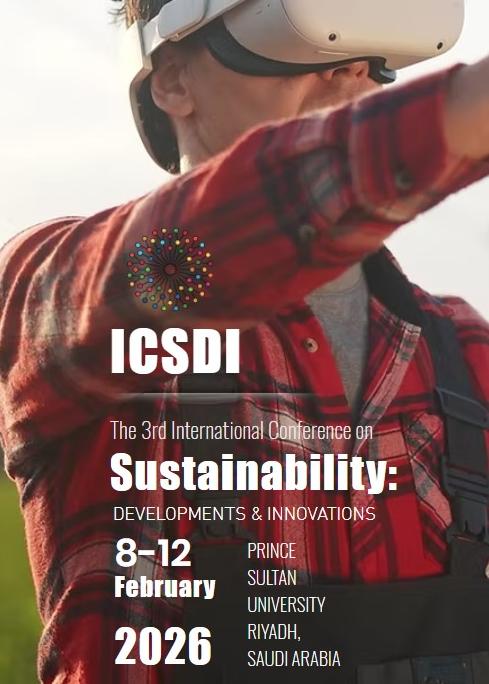INTERNATIONAL CONFERENCE ON CANCER EPIDEMIOLOGY AND PUBLIC HEALTH
- URL: https://oncologyworldcongress.com/cancer-epidemiology-conference/
- Event Date: 2025-08-11 ~ 2025-08-12
- Submission Date: 2025-07-11
- Organizer: Stripe Conferences
- Location: Berlin, Germany
Cancer Epidemiology Conference and Public Health Summit is scheduled for August 11-12, 2025, in Berlin,Germany. This significant event aims to enhance our comprehension of cancer epidemiology and public health initiatives. It will provide a key platform for researchers, public health experts, clinicians, and policymakers to delve into the latest advancements in cancer prevention, early detection, and population health strategies. Attendees will participate in a range of keynote speeches, scientific sessions, and panel discussions that emphasize innovative research and evidence-based approaches to lowering cancer incidence and mortality. Key topics will encompass cancer surveillance and screening, environmental and genetic risk factors, lifestyle modification and prevention strategies, as well as health disparities in cancer treatment.
Additionally, the conference will tackle the challenges and opportunities present in the field, including new trends in cancer epidemiology, the influence of public health policies on cancer prevention efforts, and the incorporation of cutting-edge technologies and data analytics in managing population health.
The need for Cancer Epidemiology and Public Health
Cancer is a leading cause of death worldwide, with nearly 10 million deaths annually, and its impact is projected to grow. By 2040, the number of new cancer cases is expected to exceed 29 million per year. The economic, social, and emotional toll of cancer is profound, affecting individuals, families, and healthcare systems.
Many cancers are preventable or treatable if detected early. For instance, lifestyle modifications, vaccination programs, and screening initiatives have proven effective in reducing the incidence and mortality of cancers such as cervical, lung, and colorectal cancer. However, these strategies are not uniformly implemented across populations, leading to disparities in outcomes. This highlights the importance of cancer epidemiology and public health, which work together to identify risk factors, monitor trends, and implement interventions that benefit entire populations.
Principles of Cancer Epidemiology and Public Health
Understanding Cancer Distribution and Trends
Epidemiology examines how cancer affects populations based on factors like age, gender, ethnicity, and geography. This knowledge helps identify high-risk groups and inform targeted interventions.
Risk Factor Identification
Epidemiologists uncover the causes of cancer by studying both modifiable (e.g., smoking, obesity, infections) and non-modifiable (e.g., genetic predisposition) risk factors. For example, the link between tobacco use and lung cancer or HPV infection and cervical cancer has led to effective prevention strategies.
Prevention Strategies
Public health initiatives aim to reduce cancer risk by promoting healthy lifestyles, vaccination programs (e.g., HPV and Hepatitis B vaccines), and policies such as tobacco control and environmental regulations to limit exposure to carcinogens.
Early Detection and Screening
Screening programs for cancers like breast, cervical, and colorectal cancer enable early detection, significantly improving survival rates. Public health plays a vital role in increasing awareness and accessibility to these services.
Health Equity and Access
Addressing disparities in cancer prevention and care is a cornerstone of public health. Ensuring equitable access to resources, education, and treatment helps close gaps and improve outcomes for marginalized populations.
Challenges in Cancer Epidemiology and Public Health
Health Disparities and Inequities
Socioeconomic, geographic, and cultural disparities result in unequal access to prevention, screening, and treatment. Low- and middle-income countries (LMICs), where resources are limited, bear a disproportionate cancer burden.
Resource Constraints
Implementing cancer control strategies in resource-limited settings is challenging due to insufficient funding, infrastructure, and trained personnel.
Data Quality and Availability
Inconsistent or incomplete data collection hinders the ability to accurately assess cancer trends and the effectiveness of interventions, particularly in LMICs.
Behavioral and Cultural Barriers
Resistance to preventive measures, such as vaccinations and screenings, often stems from misinformation, stigma, or cultural beliefs, undermining public health efforts.
Complex Etiology of Cancer
Cancer’s multifactorial nature—arising from genetic, environmental, and lifestyle factors—complicates the development of predictive models and universal prevention strategies.
Emerging Challenges
An aging population, urbanization, and lifestyle changes are contributing to shifts in cancer trends, necessitating adaptive strategies. Additionally, new threats, such as the impact of climate change on cancer risk, require innovative research and solutions.
Opportunities for Progress
While challenges persist, the landscape of cancer epidemiology and public health also presents significant opportunities:
Technological Advances
Emerging technologies like artificial intelligence (AI) and big data analytics enable better analysis of cancer patterns, improve prediction models, and optimize resource allocation.
Global Collaborations
International partnerships, such as the WHO’s Global Action Plan for Noncommunicable Diseases, foster shared knowledge and coordinated efforts to combat cancer.
Focus on Prevention
Increased investment in preventive measures, such as HPV vaccination and tobacco cessation programs, can yield substantial long-term benefits in reducing cancer incidence.
Personalized Public Health
Integrating genomic and molecular data into public health strategies allows for more precise interventions tailored to individual and population needs.
Conclusion:
The Cancer Epidemiology and Public Health Conference highlights the critical role of these disciplines in addressing the global cancer burden. By examining cancer trends, identifying risk factors, and implementing evidence-based prevention and control strategies, epidemiology and public health have the power to transform outcomes.
Despite challenges, the progress made in reducing tobacco use, increasing vaccination coverage, and promoting early detection showcases the potential of these fields. However, addressing disparities, improving data quality, and overcoming behavioral and cultural barriers require continued innovation and collaboration.
RELATED KEYWORDS:
UPCOMING CONFERENCES:
https://oncologyworldcongress.com/immunotherapy-cancer-conference/
https://oncologyworldcongress.com/cancer-epidemiology-conference/
https://oncologyworldcongress.com/advances-in-cancer-research-conference/
https://oncologyworldcongress.com/clinical-decision-conference/
https://oncologyworldcongress.com/pediatric-oncology-conference/
https://oncologyworldcongress.com/cancer-genomics-conference/














